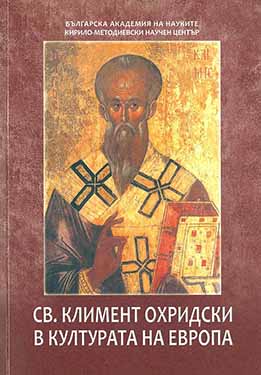Бележки върху етническата ситуация в Деволския комитат през Ранното средновековие
Notes on the Ethnic Processes in the Devol Komitat During the Early Middle Ages
Author(s): Kamen Stanev
Subject(s): History, Language studies, Language and Literature Studies, Middle Ages
Published by: Кирило-Методиевски научен център при Българска академия на науките
Summary/Abstract: The Devol Komitat is an administrative district in the First Bulgarian Kingdom, which encompassed the western part of the present territory of Macedonia, Southern Albania and Northwestern Greece. According to written sources and archaeological data this area was unevenly populated during the period of 7th–9th century. Large groups of Slavs inhabited southern Albania and northern Greece. The Komani-Kruja culture’s bearers occupied the westernmost part of Macedonia (around the modern towns of Ohrid and Struga). The culture’s center was in the northern part of present Albania and is associated with Late Antiquity surviving population. The available data for the rest territory of present Macedonia indicate a very low population density. Bulgarians led by Kuber settled in the Prilep Plain at the end of the 7th century, but they soon disappeared from historical sources and remained undetectable archaeologically, for now. The conquest of the region by the Bulgarians in the first half of the 9th century coincided with the disappearance of the Komani-Kruja culture’s bearers. The ethnic processes in the Devol komitat could be regarded as similar to a case of a Bulgarian expansion in the lands south of the Balkan Mountains that happened a few decades earlier. It was associated with mass expulsion and deportation of Byzantine population, followed by colonization of population from the primary Bulgarian territories.
Book: Свети Климент Охридски в културата на Европа
- Page Range: 209-232
- Page Count: 24
- Publication Year: 2018
- Language: Bulgarian
- Content File-PDF

